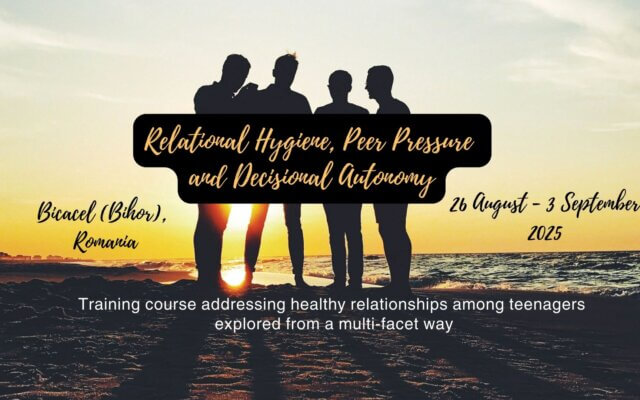Termín konání: 29 October – 5 November 2019
Místo konání: Obertshausen, Germany
Programme & action: ERASMUS+, KA 1: Training Course
Please read the info pack
Hosting organisation: Intercultural Club-Goethe Uni
Participating countries: France, Bulgaria, Romania, Estonia, Greece, Czech Republic, Croatia, Italy
Participants: Tereza Němcová, Jiří Dyčka
Being one of the successful exemplary regional unification, European Union has created an image standing above the nationalism and bureaucracy during its decades of existence period. Young generation always stand in the focus point of EU decision making process. Through the “EU(nited) for Active Citizenship – ACT+” training course, the organizers aimed to empower the young generation by giving them an understanding of the European Union main organizations´ functioning and demonstrated them how the young citizens of the Union can make their voice hearable in both their local communities and in EU level institutions.
The project “EU(nited) for Active Citizenship – ACT+” gathered in the small village of Obertshausen, Germany, from the 29th October to 5th November youth workers from 7 different countries (Bulgaria, France, Greece, Croatia, Czech Republic, Estonia, Romania), with the financial support of the Erasmus+ program of the European Union.
The training course was based on informal and non-formal education and aimed to assist the participants to play a role model in an exciting modelling of the European Parliament. Participants became representatives of different parties, coalitions and member states during the project as a role model “Politician” and represented interests of their belonging subjects in the parliamentary debates. Together with the other participants, they debated, discussed, edited and voted on laws determining the future of the Union. This tool had already proved itself in the previous projects realised by the host organization and was considered applicable also in this project. The training course could instruct the participants how to behave in the decision-making process of EU Parliament and also highly was appreciated to apply in the local communities of the participants in the future projects.
On the 29th, the participants arrived to Obertshausen and started to bond with each other by means of name games.
On the 30th, participants expressed their own fears and expectations, and they (re)learned the rules of the project. After that we moved forward with the intercultural activities that showed us the differences between our countries but also the similarities.
On the 31st, the participants understood the relationship between their countries and EU, the three institutions that constitute the EU – European Parliament, Comission and Council, and where also introduced to the debating world by performing an Oxford debate regarding coal mine.
On the 1st, we become politicians, more specifically members of the European Parliament. This experience made us realised that policies cannot move forward so fast, and that in order to get a bill passed, we need to make compromises.
On the 2nd, we retried to become MEPs, but this time we brought forward our own policies reforms. This second experienced made us realised the dynamics between the party loyalties, the committee and the country.
On the 3rd , the participants had the chance to once more place into practice the Role modelling tool and develop ideas for future Erasmus+ projects.
On the 4th, the new project’s ideas where finalized and presented, and a visit to the European Central place took place during the afternoon.
Daily reflections and group discussions once again approved that participants were able to understand the tools clearly and they would like to make this project accessible to a greater amount of people via dissemination events. During the project, our work was already shared with outside community with the help of different communication channels.
Tereza Němcová


